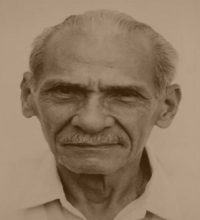Shortly before noon, we again re-embarked with the warning to avoid a place called Limbajon along the Masbate coast, where a week before, a huge force of fully-equipped Japs was forced to land after their transport was beached as a result of bombing by American planes.
What promised to be a good sunny day ended with another storm. Most of the afternoon, all but the timonel and my father had to cling to the left outriggers to counter-balance the strong wind. The cold of the rain was biting. Drenching us, the warmth of the huge waves was welcome. Everything grew dark. We were approaching the southern tip of Masbate and nearing that dreaded place, Limbajon.
I heard my father ask Lt. Jopida, who had a compass in hand, if we were on the course and off Limbajon. Lt. Jopida assured him we were. The arraiz nodded and said we were heading for just that place. We could not see ten feet from the boat. My heart stopped. If we hit Limbajon, no amount of bowing and explaining would save us from those bloodthirsty Japs.
Suddenly, though, as if in answer to our prayers, the rain stopped, the mist lifted. Limbajon was only one thousand yards away.
Due to General MacArthur’s warning (now that we were approaching Leyte) not to sail by night for anything afloat after dark would be sunk, and to the raging storm, we had to take still another risk by delaying to drop anchor at Almagro. Slowly we lowered our sails.
Figures on the beach became distinct – our eyes strained. The crowd on the beach gathered as we kept approaching, but slowly, ready to veer off at the least sign of a Jap. Then we thanked heaven and breathed freely. We were safe.
Here again we were greeted warmly and put up for the night. News, we found, was getting warmer — dogfights, naval encounters. We were still 40 miles from our destination.
